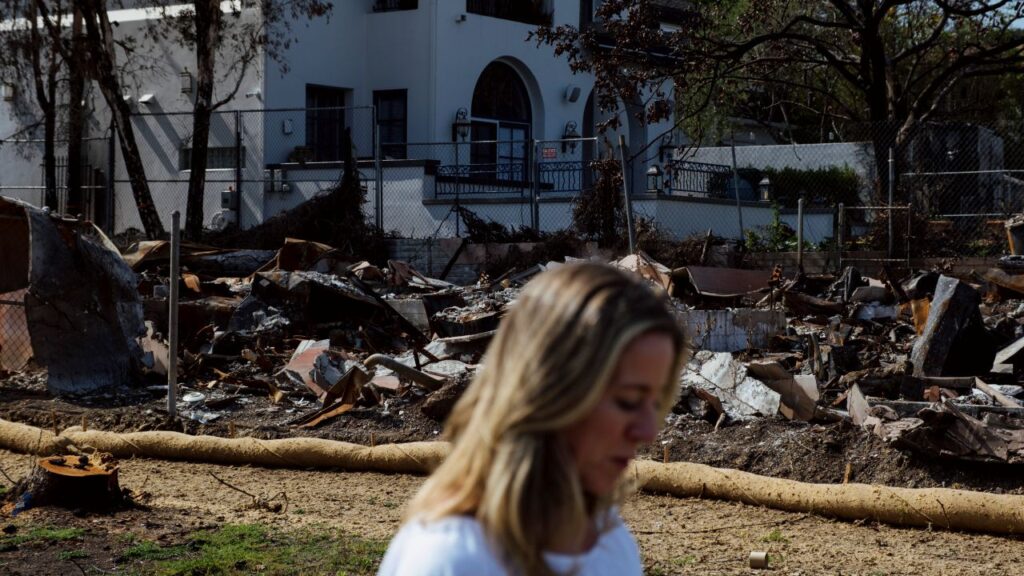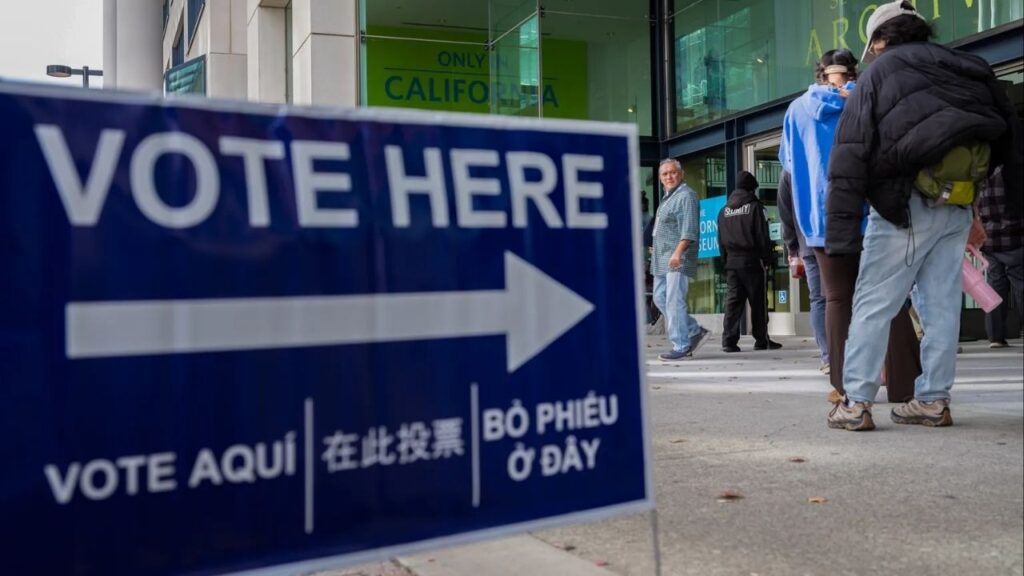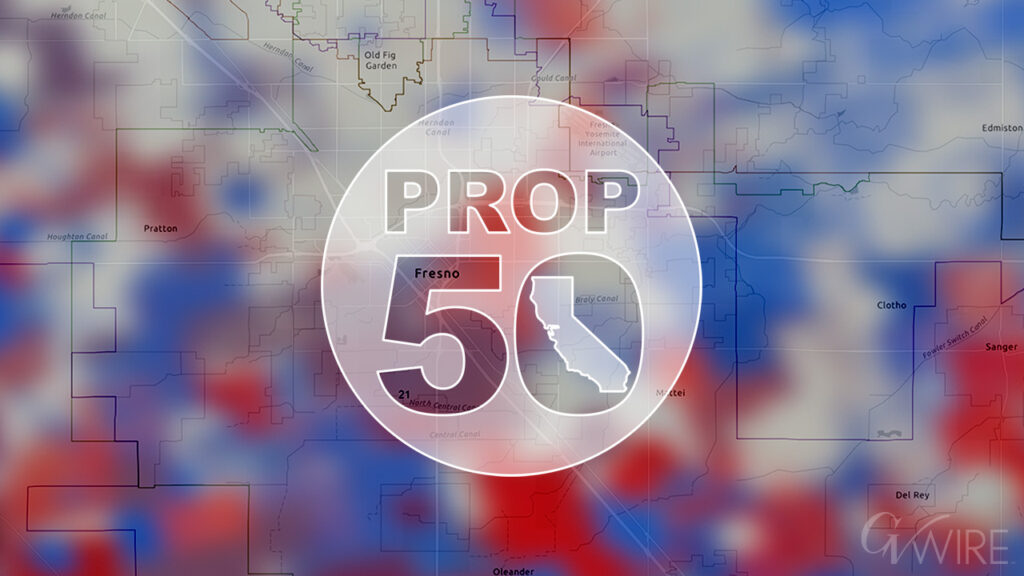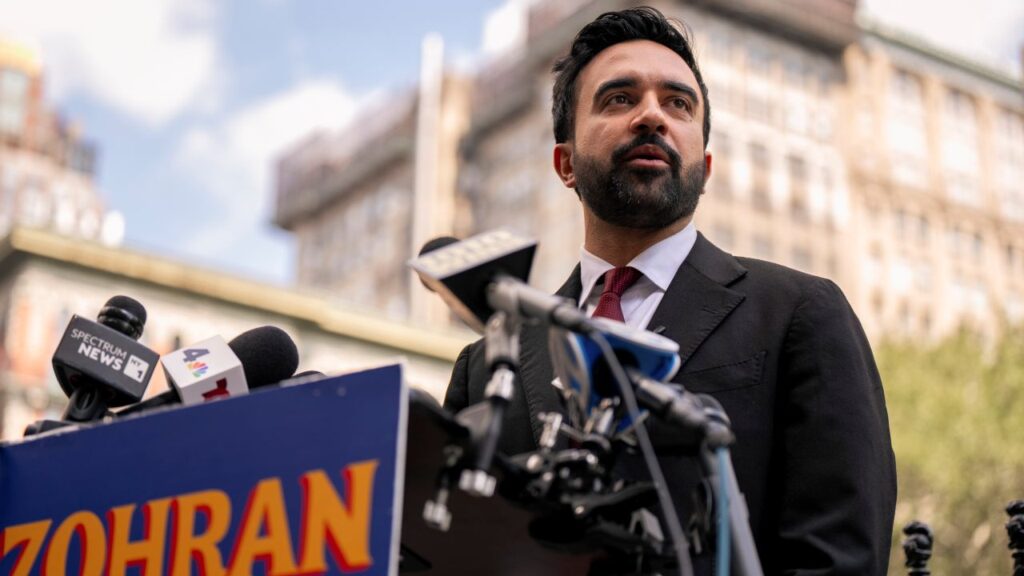Armored vehicles belonging to Iraqi security forces are stationed outside the U.S. Embassy in Baghdad’s Green Zone, Iraq, June 12, 2025. REUTERS/Ahmed Saad/File Photo

- U.S. orders partial embassy evacuation in Iraq, citing regional tensions; Trump warns Iran “can’t have a nuclear weapon.”
- Oil prices jump 4% as U.S. evacuates Baghdad embassy staff and Trump signals military readiness amid Iran standoff.
- Trump says Middle East "could be a dangerous place" as U.S. moves personnel, tensions rise over Iran nuclear threat.
Share
|
Getting your Trinity Audio player ready...
|
WASHINGTON/BAGHDAD (Reuters) – President Donald Trump said on Wednesday U.S. personnel were being moved out of the Middle East because “it could be a dangerous place,” adding that the United States would not allow Iran to have a nuclear weapon.
Reuters reported earlier on Wednesday that the U.S. is preparing a partial evacuation of its Iraqi embassy and will allow military dependents to leave locations around the Middle East due to heightened security risks in the region, according to U.S. and Iraqi sources.
The four U.S. and two Iraqi sources did not say what security risks had prompted the decision and reports of the potential evacuation pushed up oil prices by more than 4%.
A U.S. official said the State Department had authorized voluntary departures from Bahrain and Kuwait.
The State Department updated its worldwide travel advisory on Wednesday evening to reflect the latest U.S. posture. “On June 11, the Department of State ordered the departure of non-emergency U.S. government personnel due to heightened regional tensions,” the advisory said.
The decision by the U.S. to evacuate some personnel comes at a volatile moment in the region. Trump’s efforts to reach a nuclear deal with Iran appear to be deadlocked and U.S. intelligence indicates that Israel has been making preparations for a strike against Iran‘s nuclear facilities.
“They are being moved out because it could be a dangerous place, and we’ll see what happens,” Trump told reporters. “We’ve given notice to move out.”
Asked whether anything can be done to lower the temperature in the region, Trump said: “They can’t have a nuclear weapon. Very simple, they can’t have a nuclear weapon.”
Trump has repeatedly threatened to strike Iran if stuttering talks over its nuclear program fail and in an interview released earlier on Wednesday said he was growing less confident that Tehran would agree to stop enriching uranium, a key American demand.
Iranian Defense Minister Aziz Nasirzadeh also said on Wednesday that if Iran was subjected to strikes it would retaliate by hitting U.S. bases in the region.
The U.S. embassy in Kuwait said in a statement on Wednesday that it had “not changed its staffing posture and remains fully operational.”
Military Presence
The United States has a military presence across the major oil-producing region, with bases in Iraq, Kuwait, Qatar, Bahrain and the United Arab Emirates.
U.S. Defense Secretary Pete Hegseth has authorized the voluntary departure of military dependents from locations across the Middle East, a U.S. official said. Another U.S. official said that was mostly relevant to family members located in Bahrain – where the bulk of them are based.
“The State Department is set to have an ordered departure for (the) U.S. embassy in Baghdad. The intent is to do it through commercial means, but the U.S. military is standing by if help is requested,” a third U.S. official said.
Iraq’s state news agency cited a government source as saying Baghdad had not recorded any security indication that called for an evacuation.
Another U.S. official said that there was no change in operations at Al Udeid Air Base in Qatar, the largest U.S. military base in the Middle East and that no evacuation order had been issued for employees or families linked to the U.S. embassy in Qatar, which was operating as usual.
Tensions
Oil futures climbed $3 on reports of the Baghdad evacuation with Brent crude futures at $69.18 a barrel.
Earlier on Wednesday Britain’s maritime agency warned that increased tensions in the Middle East may lead to an escalation in military activity that could impact shipping in critical waterways. It advised vessels to use caution while travelling through the Gulf, the Gulf of Oman and the Straits of Hormuz, which all border Iran.
Britain’s Foreign Office said it was monitoring the situation and would keep its embassy in Iraq under constant review following the U.S. moves.
Iraq, a rare regional partner of both the United States and its arch regional foe Iran, hosts 2,500 U.S. troops although Tehran-backed armed factions are linked to its security forces.
Tensions inside Iraq have heightened since the start of the war in Gaza in October 2023, with Iran-aligned armed groups in the country repeatedly attacking U.S. troops, though attacks have subsided since last year.
Israel and Iran also twice exchanged fire last year – the first ever such direct attacks between the region’s most entrenched enemies – with missiles and war drones hurtling across Iraqi airspace.
Top U.S. regional ally Israel has also struck Iran-linked targets across the region, including Iraqi armed groups operating both inside Iraq and in neighboring Syria.
In recent months the United States has deployed more military assets in the Middle East, including B-2 bombers, which have since been replaced, and extending the deployment of a second aircraft carrier, which has since departed.
The next round of nuclear talks between Iran and the United States is due in the coming days with Iran expected to hand over a counter proposal after rejecting an offer by Washington.
A senior Iranian official told Reuters that a military threat had always been part of the United States’ negotiation tactics with Iran.
“Any military action against Iran, whether by the U.S. or Israel, will have serious consequences,” the official warned.
Iran‘s U.N. mission on Wednesday posted on X: “Threats of ‘overwhelming force’ won’t change facts: Iran is not seeking a nuclear weapon and U.S. militarism only fuels instability.”
The statement appeared to be a response to an earlier comment by U.S. Army General Michael “Erik” Kurilla, the head of U.S. Central Command, that he had provided the president with “a wide range of options” to prevent a nuclear-armed Iran.
Kurilla postponed testimony he was due to deliver before U.S. lawmakers on Thursday because of tensions in the Middle East, two other U.S. officials said.
—
(Reporting by Daphne Psaledakis, Idrees Ali, Humeyra Pamuk and Steve Holland and Jeff Mason in Washington, Michelle Nichols in New York, Ahmed Rasheed and Timour Azhari in Baghdad and Parisa Hafezi in Dubai; Additional reporting by Sam Tabahriti in London; Writing by Jaidaa Taha, Yomna Ehab and Angus McDowall; Editing by Deepa Babington and Stephen Coates)
RELATED TOPICS:
Categories

California Promised Insurance Relief But Delivered Loopholes


















